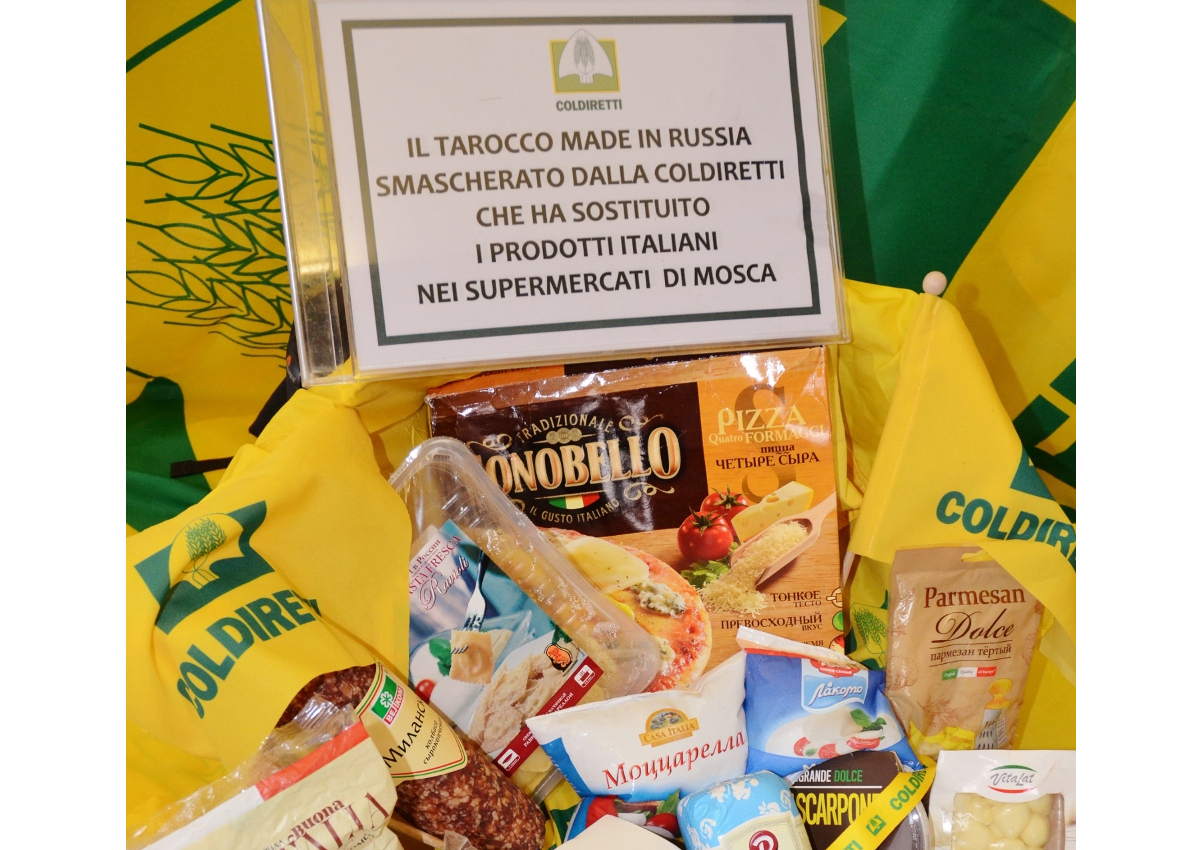
After the recent extension of EU sanctions, Russia is now expected to retaliate with a total embargo on an important list of food products and a ban on fruit and vegetables, cheese, meat and sausages but also fish, from the EU, the U.S., Canada, Norway and Australia. This is what Italian farmers’ association Coldiretti says referring to the decision of the 28 EU leaders who agreed to extend for another six months the economic sanctions against Russia for failure to comply with the Minsk agreement.
Italian sounding in Russia
The result could be the zeroing of the shipment of Made in Italy food products to Russia, which for a long time has been an important market. To the direct losses suffered by Italian exports, indirect losses could be added due to damages caused by the diffusion of counterfeited products that have nothing to do with Made in Italy (see the picture above). In Russian supermarkets, customers can in fact find local ‘substitutes’ in the place of the original Italian foods, from mozzarella ‘Casa Italia’ to salad ‘Buona Italia’ to robiola Unagrande, from mortadella Milano to parmesan, from scamorza to mascarpone. However, Russian food industry was not alone increasing the production of fake Made in Italy food products. Many other countries that were not affected by the embargo, such as Switzerland, Belarus, Argentina and Brazil, increased the production and exports of counterfeit Italian foods to Mr. Putin’s country.
Italian restaurants at risk
The risk also concerns Italian restaurants in Russia which, after a rapid expansion, could be held back by the lack of the most important ingredients. In some cases, dishes have disappeared from the menus or have been replaced by counterfeit Italian food products. The embargo proves therefore harmful for Italy, as the ban on these products is added to trade tensions that have effectively hindered exports. This is true even for products that are not directly affected by the embargo: from fashion to cars up to furniture. In 2017, total Made in Italy exports were 3 billion lower compared to 2013, the year before the embargo was enforced.
